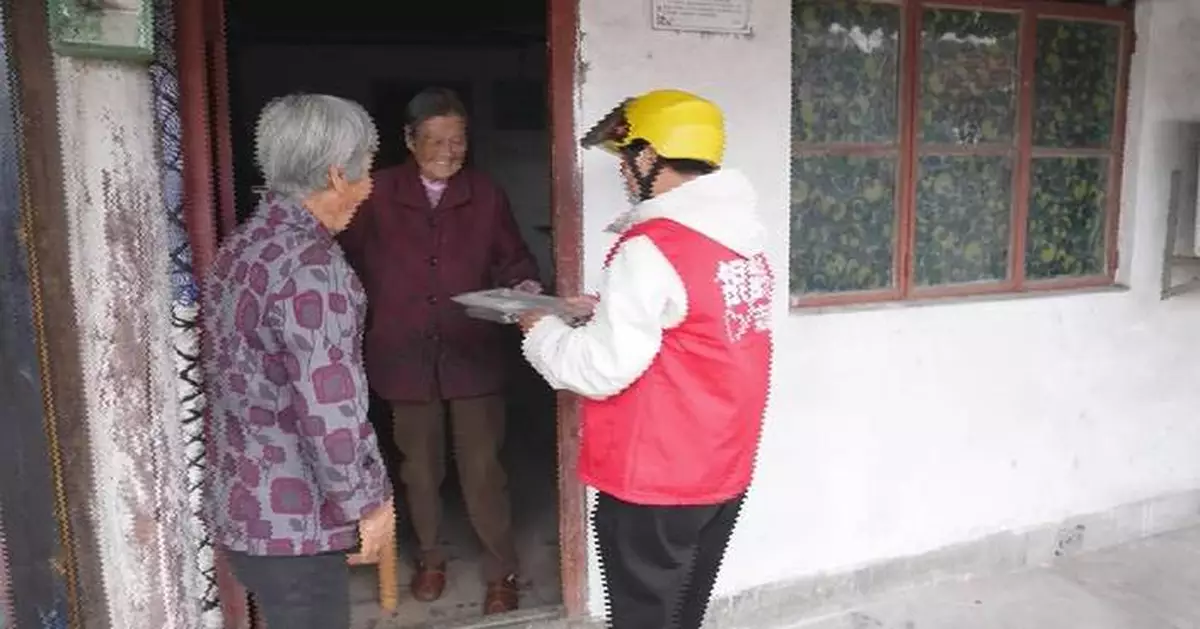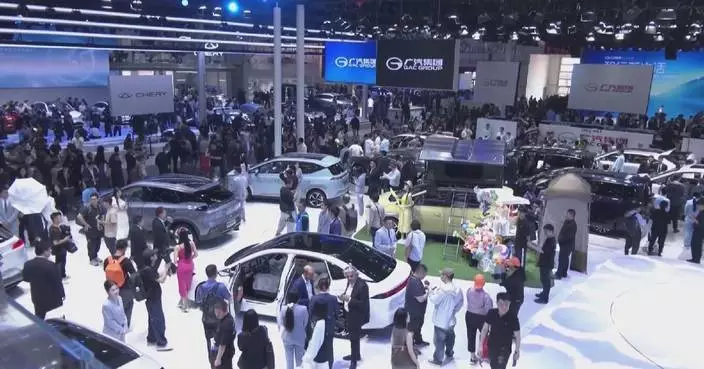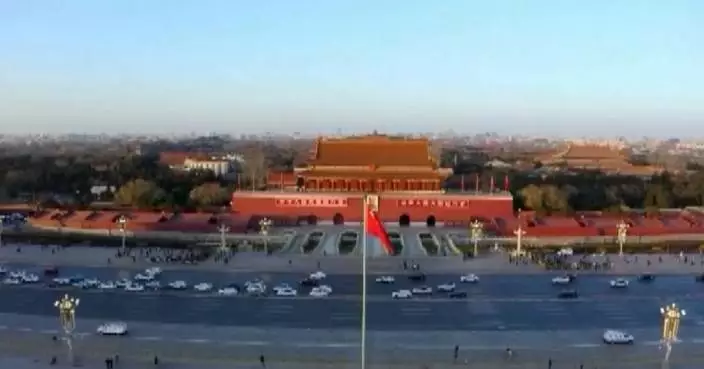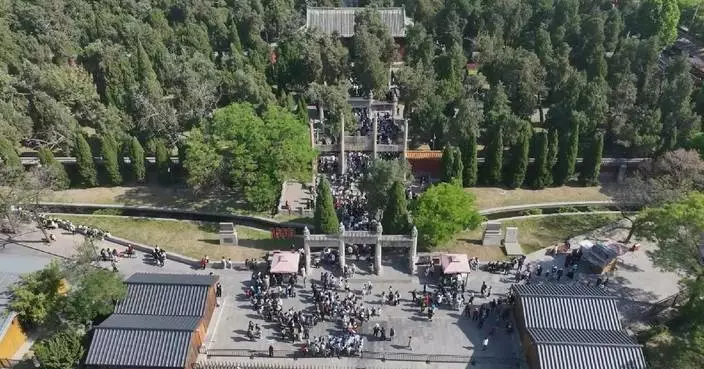A dedicated group of senior volunteers in Xiepu Town of east China's Zhejiang Province, all over 50 years old, navigate the alleys to deliver free meals to vulnerable elderly residents, including those living alone or with disabilities.
For the dedicated senior volunteers, their day starts at half-past-nine in the morning when hot meals are packed into food cases at a local nursing home.
"We prepare around 100 meals, and each village will receive one case [of meals]. The deliverymen will be waiting for me to distribute the meals. I'm in my sixties," said Zheng Yuxiang, a silver hair volunteer in Xiepu town.
After a 40-minute drive, Zheng reaches his first stop -- Juedu Village. Here, he hands over the food case to Fang Yaping, another silver hair volunteer, who then uses her electric bicycle to reach elderly residents in three nearby villages. The narrow, winding paths prevent cars from entering, making electric bicycles essential for the last leg of the delivery.
As a villager of Juedu, Fang Yaping joined the volunteer team in January 2023 as one of the first batch of deliverymen for the service. Since 2023, Fang has ridden her electric bicycle along these footpaths, bridging not only the physical but also emotional distance with the elderly.
"Sometimes, I do not have enough money, she would pay for me, and I would pay her back days later," said Jiang Jianguo, an elderly recipient of the service.
With over 1,300 elderly residents aged over 80, many of whom live alone or have disabilities, eating can be challenging. To address this problem, local authorities initiated the food delivery program.
"We encourage energetic and caring senior individuals who have just retired from their positions to join our food delivery service in their free time," said Yu Yan, deputy director of the Social Affair Office of Xiepu Town.
To date, around 90 elderly individuals have applied for the service, with meal fees guaranteed by the government. More than ten senior delivery volunteers are responsible for this service.
Dressed in red vests, these "silver hair delivery drivers" are playing a role in embodying compassion and community spirit as they navigate their electric bikes along the narrow village roads, bringing not just food but warmth and connection to the elderly.
"We will keep going and deliver happiness to the elderly," said Fang Yaping, a senior volunteer.
"My participation in this service will encourage the youth, who will join actively to help us spend our twilight years when we ourselves become very old," said Chen Aiqun, another senior volunteer.

Senior volunteers deliver meals, extends warmth to vulnerable elderly










